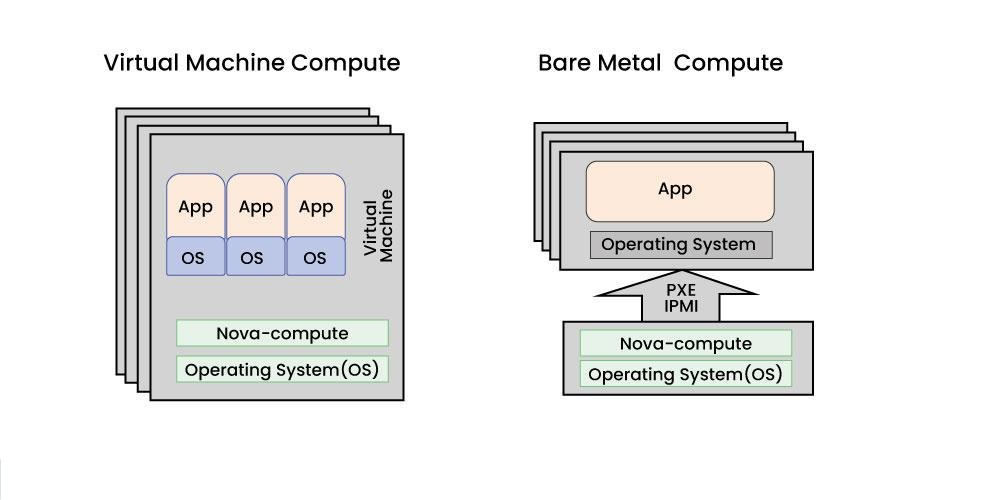Bare Metal refers to physical servers provided to the client without any virtualization layer. Unlike virtual machines (VMs) that run on a hypervisor, bare metal servers give users exclusive access to all hardware resources: CPU, RAM, disk storage, and network interfaces.
How Bare Metal server works?
When you rent a bare metal server, you get:
-
Dedicated physical hardware
-
Full administrative access (root rights)
-
The ability to install any OS and software
-
No noisy neighbors affecting performance.
The provider is responsible for maintaining the physical server, while the client controls everything from the operating system up.
Elements of Bare Metal server

In the composition of any Bare Metal server enters basic physical equipment, which receives at full disposal only one tenant. Here are the main components:
Central processor
As a rule, they use Intel Xeon or AMD EPYC, providing powerful computing operations.
Random access memory (RAM)
Large volume of RAM makes Bare Metal an excellent resource for machine learning, data analysis and database management.
Storage
-
Hard disk drives (HDD), allowing to work with large volumes of data;
-
Solid state drives (SSD), which guarantee high speed of reading or writing;
-
Hybrid system - perfect when searching for balance between capacity and productivity.
Network
Bare Metal servers possess network interfaces, capable of supporting connections from 10 Gbit/s and higher. Such high throughput is critically important for minimization of delays during data exchange, which is especially important for online games, streaming services and fintech.
Since all of the listed resources belong for only one tenant, Bare Metal offers stable high productivity.
Advantages of Bare Metal
-
Predictable performance. Physical dedicated servers can maximize their capacity and performance because of having direct access to the hardware. This is crucial for resource-intensive computations.
-
Full control over hardware. The user gains full access to a Bare Metal server (or multiple servers). As a result, they can customize the server exclusively for their needs, selecting the precise amount of RAM, configuration, operating system, and software.
-
Higher security (no shared environment). The lack of a shared virtual infrastructure lowers the risk of data breaches, enables tailored protection against malicious attacks, and facilitates monitoring of the system’s condition.
Disadvantages of Bare Metal
-
Higher cost compared to VMs. You have to purchase hardware, hire a professional who will be responsible for operation, and consider increased energy costs.
-
Limited flexibility and scalability. Increasing resources involves physically installing additional hardware, which is more time-consuming and expensive than scaling virtual servers.
-
Requires more administration skills. Due to the lack of pre-configured solutions, you will need to hire an experienced administrator.
Use cases for Bare Metal
When security is of utmost importance
Fintech rely on high levels of security and performance to ensure operations. Bare metal servers allow them to achieve this goal. Banks gain complete control over their infrastructure and maintain a high standard of transaction quality.
High-load projects
Marketplaces and social networks need an infrastructure, capable of withstanding peak loads. For example, during sales traffic sharply increases. Bare Metal provides high performance.
Streaming services
Media organizations can enhance transmission speeds and cut costs. When millions of users exchange content, uninterrupted operation is crucial. This helps maintain high-quality standards and even refine recommendation algorithms.
Other
Bare Metal servers are utilized in online gaming, machine learning projects, and AI services. This solution ensures top-notch speed and performance.



